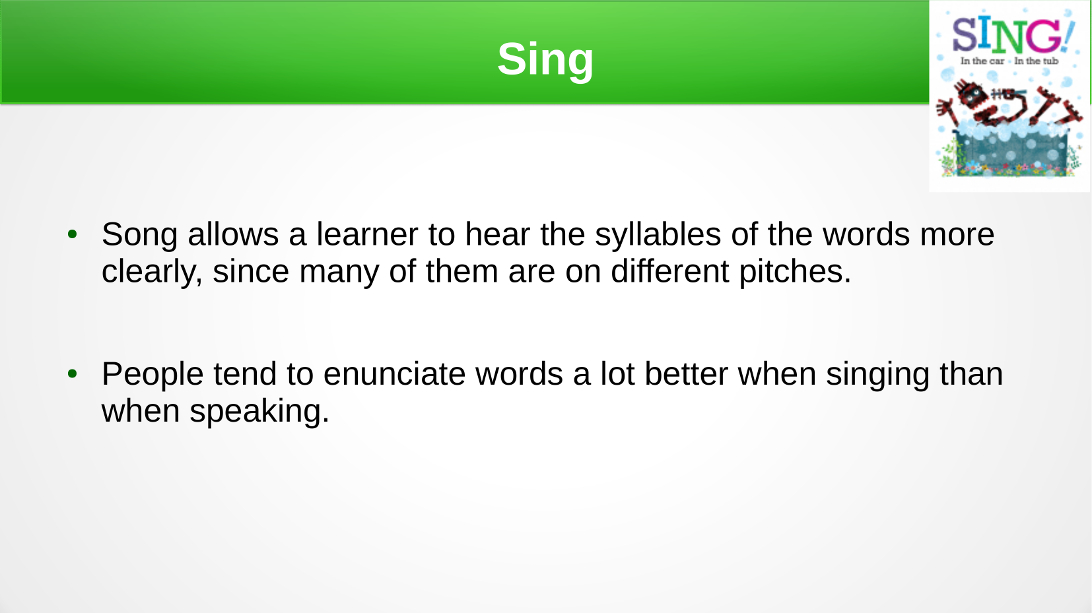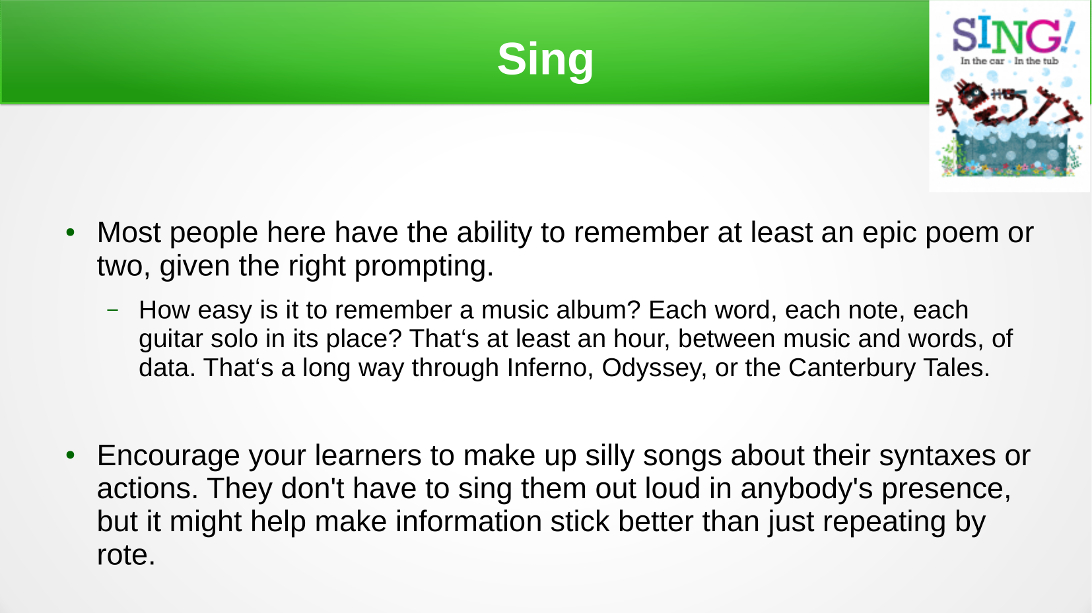Sing

Very closely related to talking is singing. Indulge me for a bit.
If you're Happy and you Know It...
Of the people here who know that song or something like it, the last time you sung it was probably...a long time ago. Unless you have young children. Then it was only a little while ago.
The staying power of song is greater than we might think. For those who have the joy of remembering the cartoon Animaniacs (or a subscription to a video streaming service that carries it), Yakko's World remains one of the most remembered songs of the time, even though the world's countries have changed significantly since then (Czechoslovakia, for one thing, has broken up). (Things get fixed in the reunion tour versions.) Slightly less well-remembered is Wakko's tour of states and their capitals. Familiar-ish tunes are used as mnemonic devices for large amounts of data. Music songs are often good for remembering significant events. "Our song", for example, or what was playing when a significant event happened. Television shows and movies do it all the time, with music cues, introductory songs, and leitmotifs. You know there's a shark in the water if you hear something like the pulse in Jaws. If you know the Bee Gees song "Stayin' Alive" well enough, you have the tempo for performing CPR.

Another reason to use singing in early literacy is that song allows a learner to hear the syllables of the words more clearly, since many of them are on different pitches and we tend to enunciate our words a whole lot better when we are singing than when we are speaking. The additional clarity helps.

Most of these examples comprise small sets of data, but I could say fairly confidently that most people here have the ability to remember at least an epic poem or two, given the right prompting. If you don't believe me, think of it this way - how many of you have albums that you know back to front, each word, each note, each guitar solo in its place? Considering most albums are at least an hour in length, between music and words, that's a lot of data to go through and remember. You could probably get through a pretty good chunk of Inferno, or the Odyssey, or the Canterbury Tales in an hour. Music is powerful, and helps us retain a lot of information.
So, if need be, encourage your learners to make up silly songs about their syntaxes, or actions. They don't have to sing them out loud in anybody's presence, but it might help make information stick better than just repeating by rote.